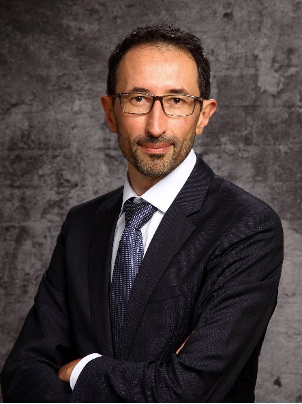MICL Seminar
The Programmable Matter Project: Realizing a matter made of autonomous robots
This event is free and open to the publicAdd to Google Calendar

Abstract: Technological advances, especially in the miniaturization of robotic devices foreshadow the emergence of large-scale ensembles of small-size resource-constrained robots that distributively cooperate to achieve complex tasks. These ensembles are formed by independent, intelligent and communicating units which act as a whole forming a programmable matter i.e., a matter able to autonomously change its shape.
In my talk, I will present our research effort in building a modular robot composed of mm-scale units. We use micro-technology to scale down the size of each element, and we study geometry, structure, actuation, power, electronics and integration. We develop new software methods to scale up in the number of managed robots like synchronization, leader election, self-assembly and self-reconfiguration to name a few.
Biography: Julien Bourgeois is a professor of computer science at the University of Bourgogne Franche-Comté (UBFC) in France. He is part of the computer science department at the FEMTO-ST institute, CNRS. His research interests include distributed intelligent MEMS (DiMEMS) and Programmable Matter. He has worked for more than 15 years on these topics and has co-authored more than 180 international publications. He was an invited professor at Carnegie Mellon University (US) from 2012 to 2013, at Emory University (US) in 2011 and at Hong Kong Polytechnic University in 2010, 2011 and 2015. He led different funded research projects (Smart Surface, Smart Blocks, Computation and coordination for DiMEMS). He is currently leading the Programmable Matter Project funded by the ANR and the ISITE-BFC project. He organized and chaired many conferences (dMEMS 2010, 2012, HotP2P/IPDPS 2010, Euromicro PDP 2008 and 2010, IEEE GreenCom 2012, IEEE iThings 2012, IEEE CPSCom 2012, GPC 2012, IEEE HPCC 2014, IEEE ICESS 2014, CSS 2014, IEEE CSE 2016, IEEE EUC 2015, IEEE ATC 2017, IEEE CBDCom 2017, DARS 2022).
Additional Information:
 MENU
MENU 
